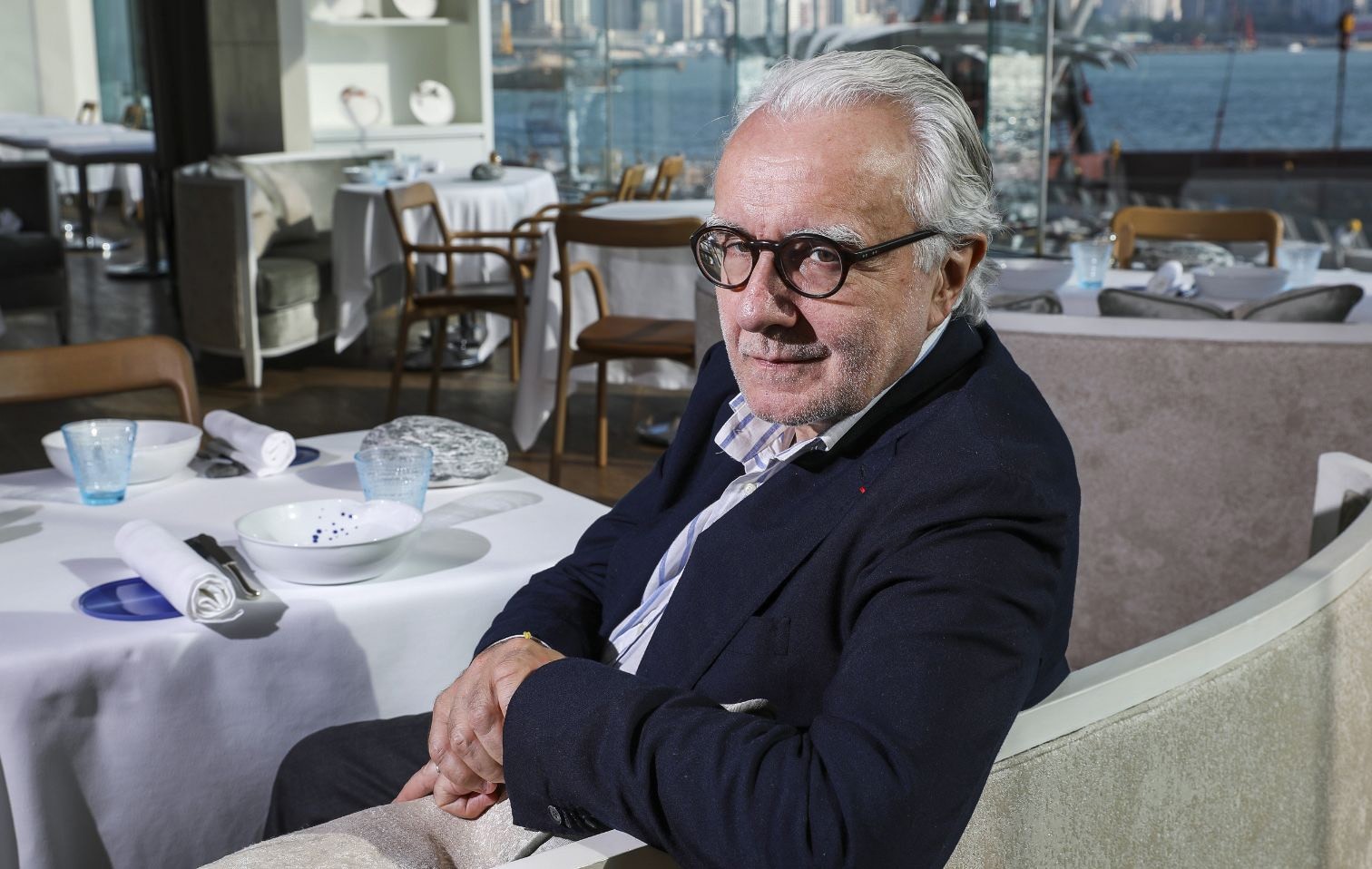Alain Ducasse contemplates on the role of cuisine today by analyzing the complex issue of sustainability in the restaurant industry and admitting that Michelin stars are not as essential as a satisfied customer.
The opinion
On the occasion of the third anniversary of Muni, a boutique hotel in the Arashiyama district of Kyoto, Alain Ducasse not only looked back on his career but also discussed the future developments in the restaurant industry. Opened during the pandemic, the hotel offers luxurious rooms with views of the Katsura River, a spa, and two restaurants overseen by the renowned chef: Muni Alain Ducasse and Muni La Terrace. Born on a farm in southwestern France, Ducasse didn't achieve fame immediately. It was only after 7 years as an apprentice that he started working with chefs like Michel Guerard and Roger Vergé, absorbing the principles of Provençal cuisine. He was still quite young when he earned his first Michelin stars at the age of twenty. Then, at 33, his flagship restaurant, Le Louis XV at the historic Hotel de Paris in Monte Carlo, received three Michelin stars, the highest recognition in the guide.
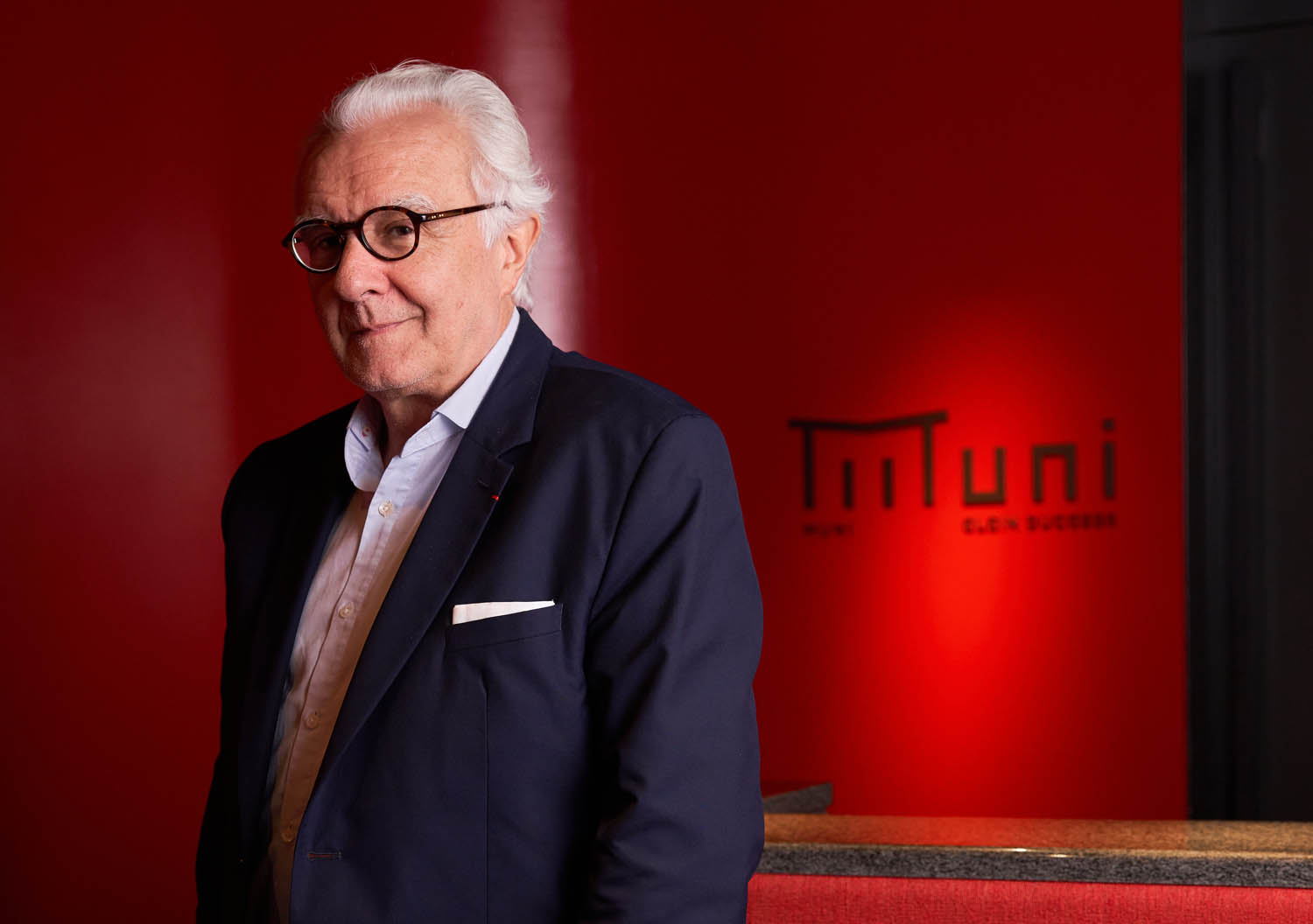
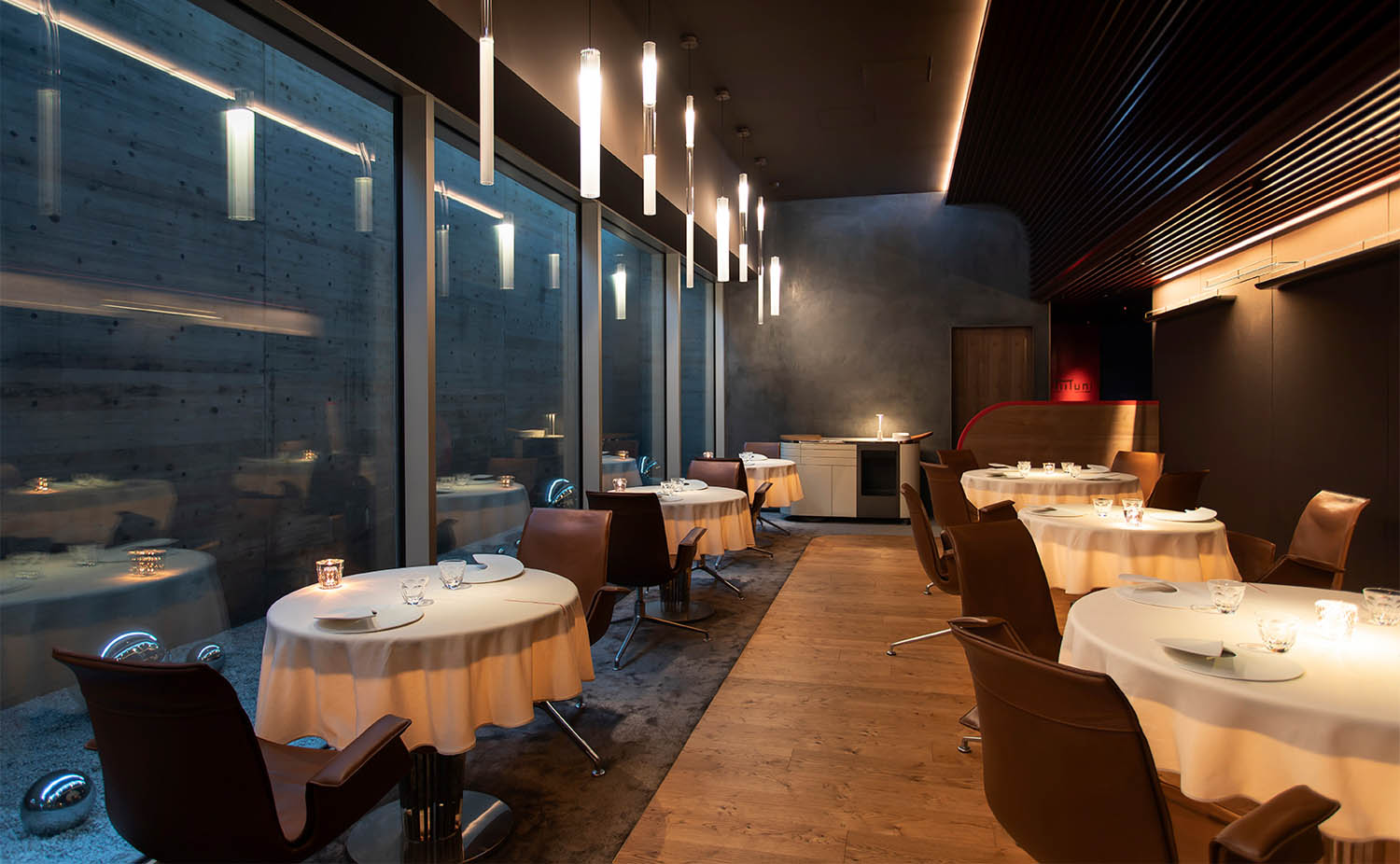
Now at 66, Ducasse holds 21 macarons (an absolute record, surpassed only by the late Joel Robuchon's 31), and he leads a group of over 30 restaurants stretching from Paris to Singapore, as well as cafes, chocolate shops, ice cream parlors, and schools teaching French cuisine to about 2,000 aspiring chefs. "I believe we should preserve this idea of sharing pleasure at the table, of joy in what we eat and drink. It's a moment of conviviality, one of the last bastions of civilization in the world. It's a moment of peace and discussion, even a bit of politics. Food sets the pace for the meal. That's why it has the status of UNESCO's intangible cultural heritage. We need to stay in tune with today's consumers and their tastes," says Ducasse.
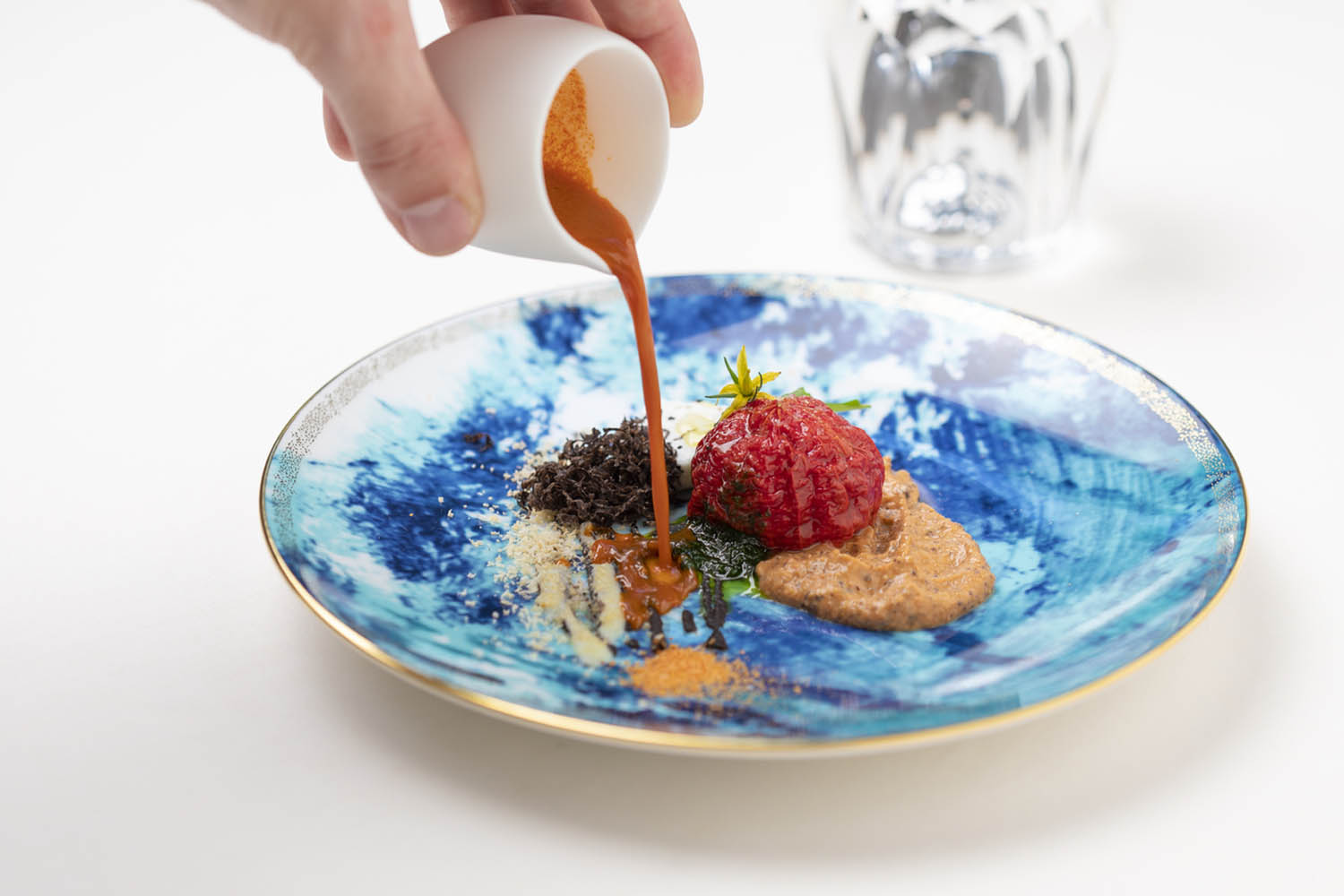
However, there are several cracks in the world of fine dining, once considered immaculate. Rene Redzepi has announced that the famous Noma will close in 2024, a decision that has led many to question the future sustainability of high-end restaurants run by "omnipotent" famous chefs. "Rene Redzepi's decision to close Noma is personal, and I don't intend to comment on it. I've been working at Beige in Tokyo for over 19 years, at Louis XV in Monaco for over 35 years, and at the Dorchester in London for over 15 years. So, in my opinion, high-level cuisine is sustainable. Of course, it must address challenging issues like human resources, sourcing, etc. We need to think of solutions to provide people with a better work-life balance. The fundamental issue is the environmental sustainability of our industry," he says.
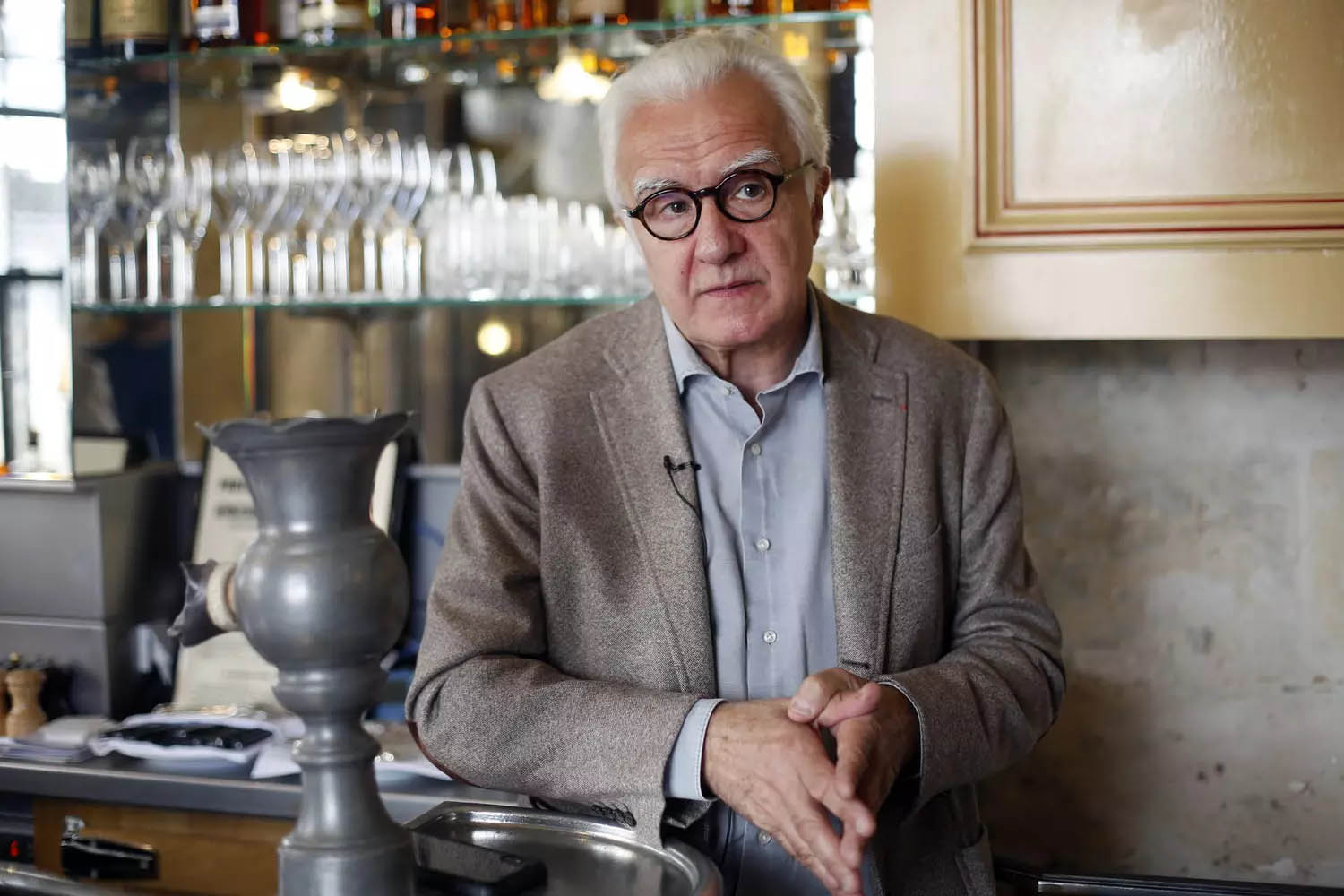
"I am now the most starred chef in the world, and despite the satisfaction of the awards, I assure you that you can live without them. I have more non-starred restaurants than starred ones, but what matters is that the chef is happy and the customer returns. Stars are a reward; they cannot be the goal. If the guide appreciates it, that's fine. For me, the goal is to have a successful business, to take pleasure in imagining the next restaurant, the approach to cuisine, taste, dishes, to be part of a movement. Instead of hindering innovation, Michelin keeps it in a state of perpetual creation and dynamism."
Cover photo: @Nora Tam
